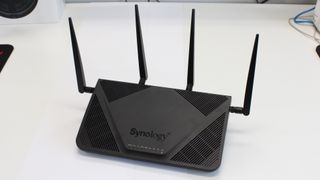Get some tape ready - your computer’s LEDs are giving away your secrets
Little flashing blabbermouths

Research from Israel’s Ben-Gurion University has revealed that the LEDs on your hard drive and router can give away sensitive information, including your passwords.
For the more security conscious among us, the little piece of tape covering your webcam has become a fairly common occurrence as the idea of our webcam being hacked and someone being able to look at us without our permission is incredibly unsettling.
But now it seems that if we want to make our computers completely secure, a little more tape is needed. The little flashing LEDs that sit on the side of our computer towers and our routers can give away our private information, it seems.
The manipulation of information like the radio frequency, electromagnetic frequency and even sound waves your computer gives off to attack it is known as a side-channel attack. This paper, published by side-channel attack specialists Ben-Gurion University show that hard-drive and router LEDs are constantly exposing side-channel vulnerabilities.
What are you looking at?
For most people, the little rapidly flashing LEDs don’t mean much to us – they are just an indication that our computer is working. If you think about it, it shouldn’t really be too surprising to learn that the light patterns relate to the data that is being processed, but it does seem like an obvious vulnerability.
What this means is that someone can essentially decode the information that your hard-drive or router is processing just by looking at the light pattern being put out. What’s even more alarming is that the technology needed to record at speeds quick enough to effectively achieve this are easily purchasable.
The paper infers that a photodiode sensor would be most effective (these can be purchased for under $100) but it can be achieved using the GoPro HERO5, which definitely isn’t a specialist piece of hardware.
Get daily insight, inspiration and deals in your inbox
Get the hottest deals available in your inbox plus news, reviews, opinion, analysis and more from the TechRadar team.
The router vulnerability needs a more complicated manipulation than hard-drives in order to get the little lights to give away sensitive information, but it’s probably worth taping up both sets of LEDs if you want to totally ensure you’re not left exposed.
- If you want to secure your computer, check out our Best free security software 2017
Via The Register
Andrew London is a writer at Velocity Partners. Prior to Velocity Partners, he was a staff writer at Future plc.
Most Popular


